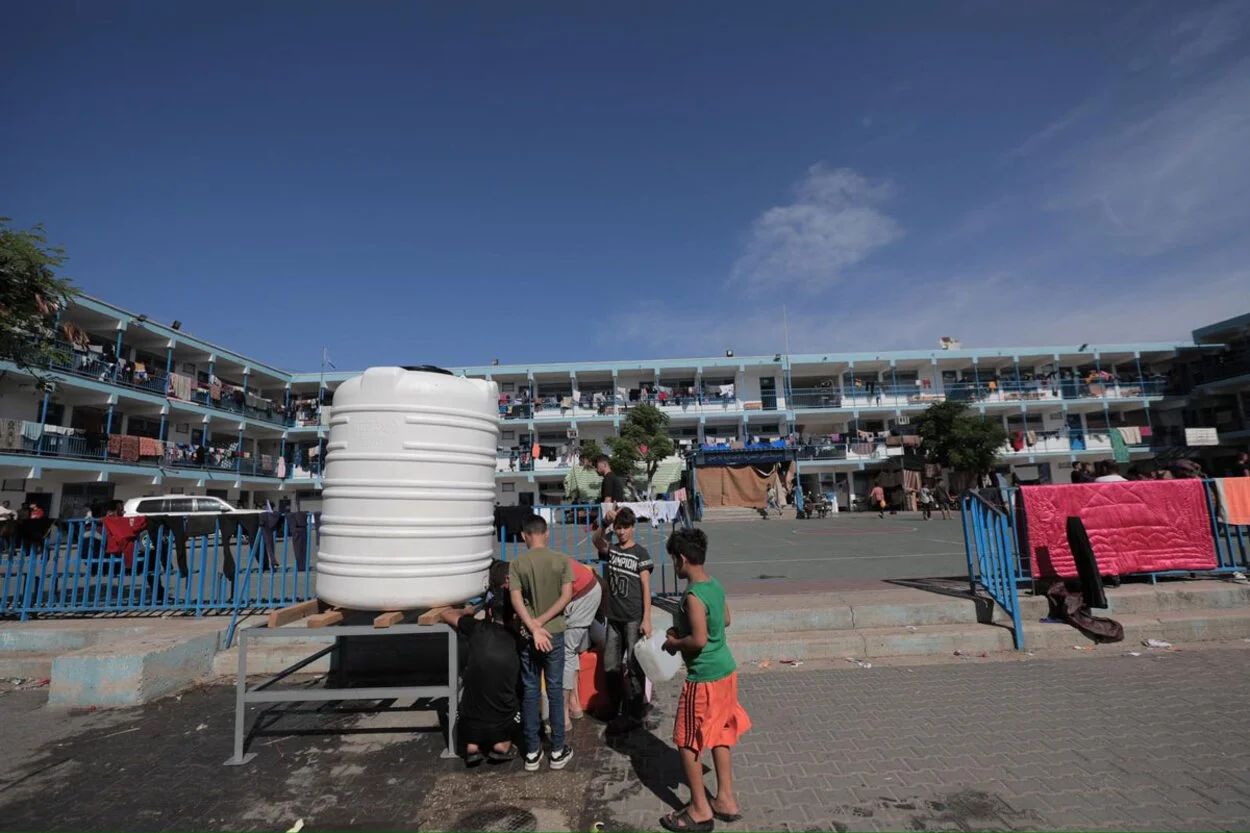“Water, sanitation, and hygiene (WASH)
Water supply through the Middle Area network, Khan Younis, and Rafah has shown temporary improvement for the second consecutive day, after UNRWA and UNICEF managed to deliver an additional 25,000 liters of fuel to crucial water facilities, sourced from their reserves within Gaza. However, unless additional fuel is delivered to these facilities, operations will be halted again soon.
In this context, two seawater desalination plants in the Middle Area and Khan Younis continue limited operations, pumping about 4,000 cubic metres of drinking water per day through the network, representing 30 per cent of their full capacity (the third seawater desalination plant in northern Gaza remains closed). Furthermore, the supply of piped water to other areas in the south, primarily brackish water, was made possible by the operation of 120 water wells and 20 pumping stations, which also received limited amounts of fuel. This has benefitted only those households with undamaged water connections.
Additionally, after water supply by Israel to the Khan Younis area reduced in previous days by 60-80 per cent, on 25 October, this supply resumed at the previous level of 600 cubic metres per hour. This too, has contributed to the availability of piped water in some households. Meanwhile, water supply through two other pipelines from Israel is suspended since 8 October.
On the other hand, a leakage of about 70 percent was identified in one of the main pipelines between Rafah and Khan Younis, due to the damage it had sustained. This has compelled water providers to halt distribution to the network to a large area, and resort to less efficient and limited water trucking.
Out of the 74 trucks that have entered Gaza through the Rafah crossing since October 21, eleven carried at least 4,000 water jerry cans (10 litres each), 4,500 family hygiene kits, and 12 community water storage tanks procured by UNICEF. These supplies have been distributed to UNRWA DES. “
Read the full report: Hostilities in the Gaza Strip and Israel | Flash Update #20
Displaced children queueing for water in a UN shelter in Gaza. Photo by UNRWA


